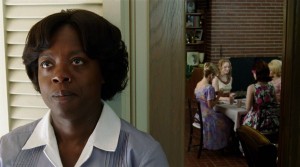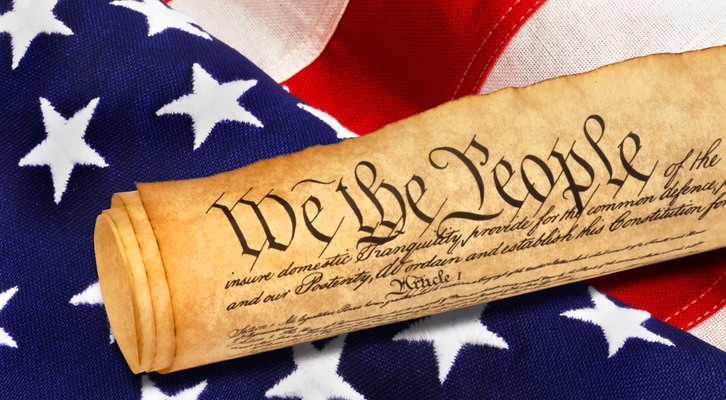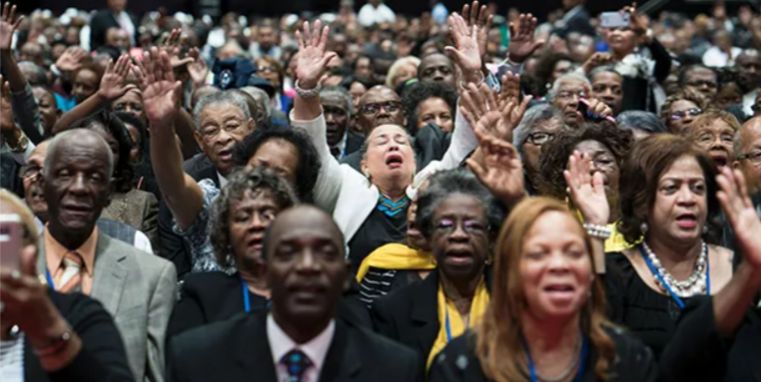(ThyBlackMan.com) Why are some of the best and brightest black female voices in America so outraged over the new movie The Help based on Kathryn Stockett’s best-selling novel?
Well, according to the Association of Black Women Historians (ABWH), and others like Professor Melissa Harris Perry of Tulane University, both the book and the movie represent widespread stereotyping and historical inaccuracies. They also take issue with the fact that Ms. Stockett’s book which has sold over three million copies, and became a major motion picture that raked in close to  $20 million dollars in its opening weekend debut has profited at the expense of the very women whose stories she purports to share so accurately in her novel. Couple this with the fact that Stockett is now being sued in a Mississippi court of law (on August 16, 2011) by a woman named Ablene Cooper, an African American nanny and housekeeper who works for Stockett’s brother and sister-in-law, for stealing her likeness and story without her permission, and you have a perfect storm of emotions and resentment from a black female community that has often been silenced and shut out of “mainstream” book success and film adaptations when we share our own stories.
$20 million dollars in its opening weekend debut has profited at the expense of the very women whose stories she purports to share so accurately in her novel. Couple this with the fact that Stockett is now being sued in a Mississippi court of law (on August 16, 2011) by a woman named Ablene Cooper, an African American nanny and housekeeper who works for Stockett’s brother and sister-in-law, for stealing her likeness and story without her permission, and you have a perfect storm of emotions and resentment from a black female community that has often been silenced and shut out of “mainstream” book success and film adaptations when we share our own stories.
The ABWH further says in part in an “open” statement released on Friday, “that despite efforts to market the book and the film as a progressive story of triumph over racial injustice, The Help distorts, ignores, and trivializes the experiences of black domestic workers. During the 1960s, the era covered in The Help, legal segregation and economic inequalities limited black women’s employment opportunities. Up to 90 percent of working black women in the South labored as domestic servants in white homes. The Help‘s representation of these women is a disappointing resurrection of Mammy — a mythical stereotype of black women who were compelled, either by slavery or segregation, to serve white families. Portrayed as asexual, loyal, and contented caretakers of whites, the caricature of Mammy allowed mainstream America to ignore the systemic racism that bound black women to back-breaking, low-paying jobs where employers routinely exploited them. The popularity of this most recent iteration is troubling because it reveals a contemporary nostalgia for the days when a black woman could only hope to clean the White House rather than reside in it.
While I agree with most of the sentiments expressed by the ABWH there is a larger, more contemporary issue that we need to consider–and that is this: some of the most poignant and heart-stirring stories of black women’s lives both past and present have been told by the likes of Audre Lorde, Toni Morrison, Anne Moody, Alice Walker, Lorene Cary, Maya Angelou, Jill Nelson and now women of my generation (self included) are starting to share our complex journey as young, urban, professional, upwardly mobile black women in America, living in the “Age of Michelle Obama.” Yet, very few if any of these books become mega-best-sellers or are adapted on film into a major motion picture.
Not to mention when we do get published, our books rarely get the marketing support and print runs of our white counterparts. This is not sour grapes, this is the reality black women live with everyday in America. And this is the real reason why so many black women are disgusted and maybe even angered by the success of a white female author who tells our story (as fiction) and is embraced and celebrated for doing so by the mainstream media, book reviews, film world, and the like.
This is no different than John Grisham’s A Time to Kill, Mississippi Burning, or Ghosts of Mississippi and the like. In all of these books, turned to film, there is a white hero who saves the black people from the bad guys. Even portrayals of the Civil Rights era give the Kennedy brothers and others a heap of credit for somehow liberating black people. NOT TRUE.
The truth is that black people liberated ourselves. We organized, we marched, we protested, we put the USA’s system of legalized segregation on trial — and we won.
That is what I think is at the crux of what bothers us all so much. It is not that our white brothers and sisters did not play a role in our liberation from slavery and Jim Crow, they did. But the challenge for us as black authors, historians, and film-makers is that we cannot often get our stories told or shared on a broad national platform because the people often making the decisions to publish, support or fund these stories do not see them as valuable or relevant.
I will end by sharing that I know of what I speak. Black Woman Redefined: Dispelling Myths and Discovering Fulfillment in the Age of Michelle Obama is my first book. It has nationally commissioned research that costs over $30,000 dollars, it includes groundbreaking insights and trends for today’s black woman, and it was published by a notable publishing house in May 2011 (but with a very small print run — my publisher hedged its bets). The book did much better than expected (for a black woman’s book), after being given a great reception by black radio, TV, and press and it has sold over 10,000 copies out the gate. The subject matter could not be more timely and relevant (it came out the same week Psychology Today said black women were scientifically unattractive), yet this book which tells the authentic story of modern-day black women of a new generation, our struggles, road-blocks, hopes and dreams has yet to be reviewed by a major news paper, or given time on a major morning show, or mainstream radio program. Those same producers and editors embrace Ms. Stockett and others like her so readily, while pushing those who live the reality into a corner to be silenced.
If I had a dime for every white female or white male editor who has told me or my publicist that the book is just “not for them” or that “it is nice but not for their audience,” I would be rich. And this is what is really driving the furor of black women scholars, historians, and journalists who once again have to sit by and hear how wonderful a white woman author is for “telling our story,” and watch her be embraced, validated, covered, and rewarded for doing so (even if inaccurately so). This is something that even in the year 2011, rarely happens to and for us as black women authors and screenplay writers.
Written By Sophia A. Nelson
Official website; http://www.sophiaanelson.com/
















This movie did look controversial to me. I still haven’t saw it though.
I read the book, but will probably not see the movie. I am a white female, 71 years old and I am very offended by the book and can see why the black people would be offended. So what if it is portrayed as what actually happened in the 1960’s, does that make it any better to open wounds of the black people who suffered so much back then? I keep hearing “rave reviews” about how wonderful the book and movie are and I cannot for the life of me understand why they “love” seeing other people suffer so. It is rumored that a black man in Mississippi was dragged from his home and killed by white men because of this movie. I pray this is not so, but when (if ever) will men stop being inhumane to other men and women? I totally agree with Linda Ridley on this one!
Give me a break… how long are we going to have to hear racism this and racism that … it’s your racism that is keeping it alive, have you ever thought of that? How can blacks still be opressed with the likes of Oprah and Mrs. Obama? It’s just another person who doesn’t want to work for the recognition and is blaming it on racism. Your stuff probably wasn’t for the publishers because it just wasn’t good. Ever think of that? Oh no, it can’t be you… it has to be racism. For God Sake woman! Go eat a chocolate pie will ya?
Joanna, you are soooo right! People who think that novels or books are just fiction are naïve. Most movies are political! Jewish people are very protective of their image. They know the power of the media. It was very instrumental for the holocaust same thing with Rwanda’s genocide. You will never see in a movie a Jewish man with a kipa in prison. Why do we celebrate being portrayed as people who are subordinates? I can’t stand the official picture of the movie which speak volume of white supramecy. It seems that we still have modern minstrels who accept to be subjugated. Their mindset goes probably like this: Why should I care as long as I get big money? When are we going to wake up and smell the coffee???
I agree with a lot of the above: This is fiction. I also am tired of the victim perspective. You have to, at a certain point, integrate the past into the present and live with it from another perspective, one that does not involve pitting blacks and whites against each other. That is what you’re doing. Did you realize that?
I liked this novel and look forward to the movie but I did notice it was a little too shiny. But again, it was a novel. It reminded me a little of Sue Monk Kidd’s “A Secret Life of Bees”. It had that same quasi fantasy/ hero worship/ mythical quality attached to the black women. You aren’t going to take away that perspective because it’s a white perspective, it’s how people cope with the atrocities of our history, and it’s better than the historical alternative.
And as far as why certain books are mainstream or not… Seriously? How could you possibly think an autobiographical book on being black in America today would touch a book of fiction that allows us to engage in and deal with our often buried and still sordid and repressed past? Stockett’s book is going to appeal to a much larger audience because it’s fiction, and because it deals with subject matter that still needs to be dealt with. White people (as a whole) have never really been capable of owning what happened– in it’s entirety. Collectively, we were forced to change, kicking and screaming, and then once we were over the hump, we found it too painful to look back. How could we? Could you? Stockett’s novel has everybody coming out okay. These sorts of novels always show the black women as not just heros, but SUPER heros. We need to believe that because we need to believe they were okay back then, that it really wasn’t that bad, that they possessed some sort of absurd strength that made it possible for them to survive. The fact that people just rise (or not) to whatever is put in front of them is not very romantic. YOUR book is not very romantic. If we read your book, about what it’s really like, we can’t have our superhero fantasy. (And really, neither can you.) We all need our myths…
So don’t hate the book and the popularity. Everybody is trying to cope with the horrors of the past. Pain is pain. It’s getting better every day. Stockett’s book isn’t so horrible. It’s just a means to an end and really, it’s a very nice story.
I knew of the controversy, and went to see the movie. Have you actually watched it or read the book, or did you just climb on the cause without actually experiencing it?
I am in a mixed race marriage and have a mixed race child. I LOVED the movie. I saw black women crying, and talking about the movie afterward, and NOT in anger or sadness. The movie is FICTION. The maids are the heroines. I could feel badly about how the white people are portrayed rejuvenating racist views of all whites as racists, but I just say NO to being made to feel that way. It’s fiction, it’s enjoyable and tells a good story. Do all novels now need to be documentaries? I don’t know about you, but as an academic, I do not get my research from novels, and I do not allow my students to, either.
This is just another form of exploitation. Why should a white woman profit from the struggle of black woman? Black people should boycot this movie, or buy it on bootleg DVD.
Why oh why do people insist on remaining victims? Is it a cultural way of life that you pass down from generation to generation? That’s the way it appears to “white people”. Just so you know.
Hey, guess what? Welcome to the real world, it sucks. It sucked for just about everyone but the Elite, since circa – like forever! You don’t get a bow out from general suckiness. Read All of history, not just the parts we like to victimize ourself with. Chris Rock might have said it best when he said he never saw Native Americans at a Red Lobster. Alice Walker had death threats for portraying black men as abusers in The Color Purple. The problem was, it was historically True.
Boo-hoo. All the time. No others cry foul every minute except jews about the holocaust, except they didn’t get the worst of it either, in historical terms, considering Pol Pot and Stalin.
Don’t people get tired of being victims forever? Cant we just move on. Is everything an affront? Caught up in stupidity?
Knock it off. It’s a damn movie, like any other stupid movie out of millions of dumb movies.
How about saving for your kids education, thinking about investments?
You think YOU are screwed, everyone is screwed now, no matter what race. Oh, you might think it good, white kids are committing suicide in droves.
I love this review! Keep up your excellent work!!!
I am finding that more and more people are TRYING to find reasons to be angry. I haven’t seen this movie but after reading the post and the review by the ABWH, I’m not really seeing the problem here. It is a period timepiece. The black women HIRED to act as maids in the 1960’s would be criticized if they did not portray those CHARACTERS in the MOVIE.
An example.. are you angry that LeVar Burton played a slave named Kunte Kinte in Roots? Did this piece promote racism? As a white woman who first watched this series as a teenager in a predominately white school, I would say not. My teacher (who was also white) used this as a vehicle to get the class talking and thinking about race relations and racism.
I am married to a black man and am raising three mixed children. I use movies like “A Time to Kill” and “Roots” to get my own kids thinking and talking. I’m sure that if one wanted they could find something to be angry about in these examples but like most situations in life one’s attitude leads the path we take.
I encourage my kids to be Christian. Love their neighbors. Teach their neighbors to love in return because love promotes more love. Hate will promote more hate; anger will promote more anger and so on. If one looks for racism they will find it and I am IN NO WAY saying that there is no racism in the world. I just don’t find the harm in a piece of art with hired actors portraying certain characters.
@the author: I am sorry that movies like these anger you and make you feel the way you do but it’s not for society to censor what artists put out into the mainstream just as it’s not for any of us to censor you or tell you that how you feel is wrong. I will pray for your peace of mind.
This film is not a documentary. It is fiction!
Why are some people upset about this film?
It is very well done, has a great story line, and is funny, sad, and thought provoking.
If the book had been written by a black woman would we be so upset?
The color Purple was wrtten by a black woman, and some black people were upset about that story (again, fiction) It’s always something! Here we go again. Now, some want to take this film and turn it into a major race/problem.
Have you seen the film?
So glad to read this, I was beginning to think it was me….I am amazed at how many folk have been anesthetized into thinking that the book and the movie don’t do any harm!